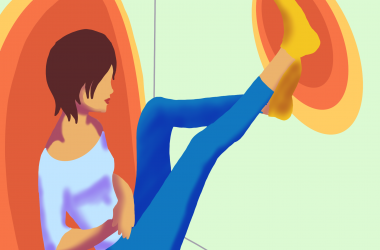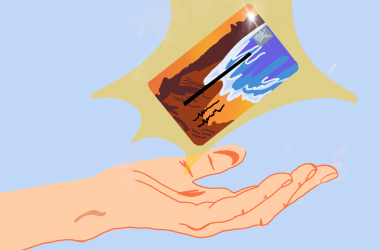Every semester starts the same for students purchasing textbooks. They continuously push and shove each other only to find that the book they were looking for has already sold out. Students lucky enough to find required texts are then discouraged by the long wait in line, and will eventually discover that the price of one book is more than what most college students make in a week.
Manufacturers of e-books fought to ease this need for printed publications. However, it has not been fully accepted.
Matt McNulty, a senior business major, said, “I’m split in the middle, I like paying less for my books, however, I’m more comfortable having something in my hand to read when I’m studying.”
Since Amazon.com introduced its Kindle e-reader in 2007, the push for the publication of e-books on e-readers has been a growing market. Barnes and Noble seeks to follow this trend by producing its own brand of e-reader called “Nook” to be released in December.
E-readers allow customers to download e-books directly onto the device via an online store and have them ready to read on demand. They incorporate the e-Ink display that, while not as visually stimulating as a computer screen, makes reading for longer periods easier because of its ability to customize certain aspects.
So how can e-readers change how we read our books? Well, for starters, students no longer have to worry about long lines or expensive prices when e-readers make books available on demand. This comes in handy for the student who waits until the last minute, only to find the bookstore does not have a needed book in stock.
Stephanie Dang, a senior communications major, said, “I like the concept of the e-reader because every semester I have to carry all these heavy expensive books. With an e-reader, though, I’d have all my books in one little device and I can get them at my convenience.”
Also, e-readers offer subscriptions to newspaper and magazine publications. Because online publications have all but crippled the print industry, the devices create a new way to reach audiences.
E-readers could do for books what iPods did for music. Libraries of publications could be condensed to be available on an easy-to-handle and easy-to store-device that allows publishers of books, newspapers, magazines and even blogs the opportunity to be read by a technology-savvy audience. This could also appeal to non-established online readers looking to broaden their collections.
While it may still be a few years until e-readers reach every home in the U.S, it can be expected to see them become popular. Although there will still be those who enjoy the ambiance a bookstore provides, many will enjoy bringing the bookstore to them.
Allen Griffin is a senior journalism major and a contributing writer for the Daily 49er.



